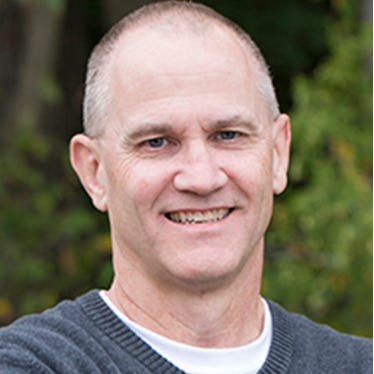
Editor’s note: This is the first in a three-part series as Farm Progress focuses on mental health awareness for our nation’s farmers and ranchers during Mental Health Month. We will feature more information from specialists, along with resources in the coming weeks on FarmProgress.com.
Two Minnesota farmers are on a mental wellness journey and believe others should join them.
Bob Worth’s and Elizabeth Golombiecki’s jobs are demanding, as weather, economics and even isolation can create extreme stress, anxiety and depression. Worth, a baby boomer, is a row crop producer from Lake Benton; and Golombiecki, a millennial, is a dairy farmer near Morris.
When it comes to dealing with mental health challenges in rural America, does one generation handle it better than another?
In the 1980s, Worth was in the throes of the farm crisis. Personal issues were not openly discussed, especially not in farming communities.
“I never said a word to anybody because there was no way big macho farmers were talking about mental health,” Worth says.

USING PLATFORM: Bob Worth is on his second go-round as president of the Minnesota Soybean Growers Association. While that position gives him leverage to work for the cause of soybean farmers, he also feels compelled to use that platform to speak about his battle with mental health challenges over the years. (Kevin Schulz)
Unlike older generations, Golombiecki does not feel a stigma around mental health. Getting counseling is not a “bad thing” for young ag producers.
Nearly 45% of millennials are more likely to go to therapy, while only 8% of baby boomers will visit a specialist, according to a survey by OnePoll.
“When my dad died, there was not time to grieve in the conventional sense,” Golombiecki says. “There were still chores to be done. So, when I started to seek counseling, I was not in a crisis. I just needed to work through some things.”
Neither the statistics, stigma nor circumstances stopped Worth and Golombiecki from reaching out for help. Now, they share their stories to encourage all generations of farmers to seek support for strengthening their mental health.
Boomer makes it through farm crisis
Worth remembers not wanting to do anything. “I just stayed in the house,” he says. “I didn’t care if I got out of bed.”
It was in the mid-1980s, and Worth had taken over his father’s farm in 1981 after working alongside him since 1970. “And in 1986, all heck broke loose,” he says, referring to the farm crisis that changed a lot of lives.
More than 900 Midwest farmers — all men — died by suicide in that fateful decade. While Worth doesn’t remember attempting or contemplating suicide, he says he “went into a severe case of depression.”
Like other farmers in that decade, he wasn’t talking, so his wife, Gail, stepped in.
“She saw that I was really deteriorating and said, ‘You’re going to the doctor,’” he recalls. “I mean nobody’s ever gone to the doctor for mental health. Nobody. But I did; she made me go.”
At the time, there wasn’t a focus on general mental health well-being.
“I got a young doctor that was probably working on mental health, and he really, really helped me,” Worth says. “It took a year to get me on the right medication, but he got me straightened out.”
A few years ago, Worth started sharing his story through TransFarmation, a podcast series highlighting the need to be open and to talk about farm stress and its impact on mental health.
At a farm show, a man approached Worth with a sobering tale. “He said, ‘I want to thank you; you saved my life. I was going to commit suicide, and I listened to your story, and I thought about my grandkids, and I went and got some help.’”
Worth, who is also president of the Minnesota Soybean Growers Association, says he often wondered if telling his story was doing any good. “I said right there that I’ll tell my story forever — because if I just help one person, it’s worth it.”
Millennial tackles sudden farm stress
Five years ago, Golombiecki’s father died. The responsibility for the future of the dairy farm fell to the then-22-year-old Golombiecki and her 23-year-old brother. And it started the moment their father died.
“Dairy farming doesn’t stop,” she says. “I remember the day my dad died. He’d been in hospice. I had to call my brother in from the barn to tell him we needed to stop the chores coming, because this was it. We were all there. After he passed, we had to head out and finish chores. We even had to schedule the funeral in between milkings, because we don’t have someone to do that for us.”
Not being able to pause and process the loss of her father weighed on Golombiecki. But it was more than dealing with grief — the concern over the farm kept creeping to the front of her thoughts.
“When I’m milking, there’s not much else I can do but think,” she says. “I sometimes get down a rabbit hole, and it’s like, ‘Holy cow, how did I get here?’”
A friend encouraged Golombiecki to call Monica McConkey, a rural mental health specialist with Eyes on the Horizon Consulting in Minnesota. McConkey grew up in agriculture and provides counseling for farmers and their families.
For nearly two years, the pair visited at least monthly, often weekly or biweekly, in person or via Zoom.
Through sessions, they tackle challenges — loss of a father, struggling dairy prices, working with family, being young, driving the farm’s future, guilt of taking time off and the isolation of being a woman in agriculture.
While it can be emotionally draining at times, Golombiecki says talking with a counselor who understands her industry and plight helps.
“It is so easy to get down on yourself,” Golombiecki shares. “What we’ve worked on is positive reassurance. I take a step back, take myself out of the situation for a moment and look at where I’ve come.”
Today, Golombiecki is still farming. “We’re doing better than before,” she says. “I don’t have an off-farm job anymore. I’m using money wisely to keep the farm going. Sure, I can have bad days, but it is not a bad life.”
Right time to find support
Individuals don’t have to have anything “wrong” in order to seek out a mental health professional.
“You can be a happy-go-lucky person all the time. But still, just having that counselor and having that relationship established before you’re in crisis maybe keeps you from ever getting to a crisis,” Golombiecki notes. “Just talking to someone, getting it out to somebody else, makes such a big difference. Everybody needs somebody.”
If you or someone you know needs support, call or text 988, or visit 988lifeline.org.
About the Author(s)
You May Also Like








